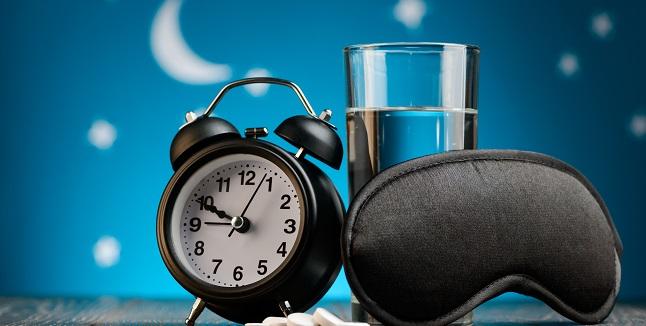Nighttime Hypertension Drug Dosing May Reduce Risk of CVD
Despite showing a big decrease in risk, the study needs to be reproduced before this strategy is widely adopted, an expert says.

Taking prescribed hypertension therapies before bed may allow the body’s circadian rhythm to boost their effects, resulting in both better blood pressure control and greater decreased risk of major CVD events, a large Spanish study suggests.
“This new trial is by far the largest ever conducted on the chronotherapy of hypertension and with the longest duration of follow-up,” lead author Ramon C. Hermida, PhD (University of Vigo, Spain), said in an email. “It was conducted at multiple primary care centers, and thus the results reflect what could be expected in routine clinical practice.”
The Hygia Chronotherapy Trial randomized over 19,000 hypertensive patients to take their medications—angiotensin-receptor blockers (ARBs), ACE inhibitors, calcium-channel blockers, beta-blockers, and/or diuretics—in the morning, or to a routine of taking them just before bed. After a mean of 6.3 years, people who took their medications at night, rather than in the morning, had greater declines in their mean systolic and diastolic pressures while asleep. Moreover, fewer in the nighttime group were classified as “nondippers,” a term used to denote patients who do not achieve a mean decline of 10% or greater during sleep (37% vs. 50%; P < 0.001).
Most significantly, the nighttime-medication group had a 45% decrease in the composite primary endpoint of MI, coronary revascularization, heart failure, ischemic stroke, hemorrhagic stroke, and CVD death (P < 0.001). The findings were similar for the secondary individual endpoints of stroke, coronary events, and cardiac events.
Commenting for TCTMD, Raymond Townsend, MD (University of Pennsylvania, Philadelphia), cautioned that while the decrease in CVD events is impressive and the study could signal an important new understanding in hypertensive drug therapy, the nighttime regimen needs to be replicated in other populations before strong conclusions can be drawn. He noted that only a handful of other studies have shown that dosing at night may be better than dosing during the day, with at least one trial—the AASK study in African-American patients—showing that nocturnal dosing resulted in no significant difference in blood pressures compared with daytime dosing.
While the nighttime group in the Hygia study did have a decline in their blood pressures when asleep, there was no difference when they were awake. Furthermore, Townsend noted that the reductions in the asleep systolic and asleep diastolic pressures were so small, it’s hard to fathom how they could have translated to such a large decrease in CVD events. Asleep systolic readings were 118.0 mm Hg in the daytime dosing group versus 114.7 mm Hg in the nocturnal dosing group (P < 0.001), and asleep diastolic readings were 66.1 and 64.5 mm Hg, respectively. One possibility, although it requires validation, is that nocturnal dosing somehow results in beneficial pleiotropic effects, he added.
“I look at this as one more flag planted for the potential value of revisiting how we dose medication,” Townsend observed. “Some of the aspects of the study design and execution would make me think it's more in the hypothesis-generating category, but certainly it’s not the sort of thing you would sweep under the rug and ignore.”
Sleep BP Appears Prognostic for CVD Risk
For the Hygia Chronotherapy Trial, published online October 23, 2019, ahead of print in the European Heart Journal, Hermida and colleagues randomized patients to the daytime or nighttime strategies between 2008 and 2018, with primary care physicians prescribing their therapy without restriction. The most frequent monotherapies were valsartan or telmisartan, enalapril or ramipril, and amlodipine. Common dual combination strategies were ARB/ACE inhibitors plus a diuretic, which in most cases was hydrochlorothiazide in doses up to 25 mg/day. To TCTMD, Hermida said his group recommends not going higher than 25 mg for a nighttime strategy to avoid patients having their sleep disrupted by the need to urinate.
I look at this as one more flag planted for the potential value of revisiting how we dose medication. Raymond Townsend.
Over the study period, patients had their office blood pressure taken at each visit and were given ambulatory monitors to wear for 48 hours. These visits occurred annually or more often if hypertension was uncontrolled or if patients had comorbid conditions such as diabetes, chronic kidney disease, or past history of a CVD event.
Hermida and colleagues say they believe progressive decreases in systolic BP while asleep have higher prognostic value for reduced CVD risk than conventional risk factors such as advanced age, male sex, low HDL cholesterol, smoking, type 2 diabetes, and chronic kidney disease.
“Furthermore, patients ingesting medications at bedtime also showed at the end of the study improved renal function and lipid profile (lower LDL and higher HDL cholesterol), all of these known markers of cardiovascular risk,” Hermida said.
But Townsend disagreed, noting that kidney function and albumin excretion were in the normal range for patients in both groups from the beginning to the end of the study.
Both the investigators as well as Townsend conclude that patients should consult their physicians before making a change in how they take hypertension medications rather than deciding on their own on the basis of the study.
“I'm not throwing out the baby with the bathwater for what we do currently,” Townsend said. “Their results are consistent with their own previous work, but I just am not sure that our diverse population in the US would respond exactly the same. There are a couple of things that need to be tidied up, maybe with a trial in the US, at least a proof of concept.”
L.A. McKeown is a Senior Medical Journalist for TCTMD, the Section Editor of CV Team Forum, and Senior Medical…
Read Full BioSources
Hermida RC, Crespo JJ, Dominguez-Sardina M, et al. Bedtime hypertension treatment improves cardiovascular risk reduction: the Hygia Chronotherapy Trial. Eur Heart J. 2019;Epub ahead of print.
Disclosures
- Hermida reports no relevant conflicts of interest.
- Townsend reports author royalties from UpToDate.


Comments